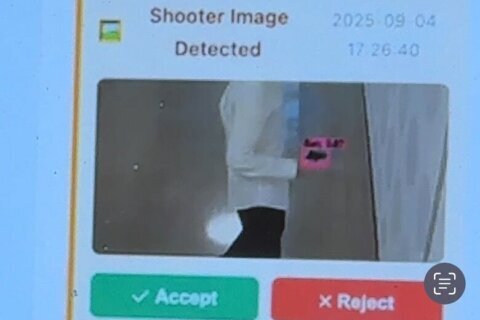By Rich Johnson, WTOP.com
WASHINGTON — Montgomery County State’s Attorney John McCarthy has a very busy job. But there’s one part he’d like to give up: prosecuting kids who use drugs.
He hopes the latest version of Maryland’s so-called “good Samaritan” law will ease his workload.
“You may have some consequences with your parents, but you’re not going to wind up in jail,” said McCarthy as he prepared to brief Northwest High School students on the law. “If the police come [to an overdose emergency], you will be given immunity. You will not be prosecuted by the state.”
The law’s been on the books in Maryland since 2009, but was strengthened this year to specifically offer immunity to someone who, “in good faith provides medical assistance to another person believed to be experiencing a medical emergency; or to a person who believes he or she is experiencing a medical emergency.”
McCarthy’s been visiting Montgomery County high schools and middle schools to spread that word — and warning about the dangers of heroin, which is making a big-time comeback in Maryland.
McCarthy is not linking heroin use to marijuana. He says the real “gateway” drugs are prescription painkillers, and a growing number of victims are high school athletes who get injured.
“They were given some kind of painkiller by a physician,” McCarthy said. “But once that painkiller ran out, they needed that same high, and they transitioned to heroin.”
Which, says McCarthy, is “dirt cheap” these days, and sometimes cut with chemicals that can almost instantly stop your breathing.
Lea Edgecomb doesn’t know if it was the heroin or the cutting agent that stopped her heart back in 2009.
“I went into cardiac arrest for eight minutes, and that resulted in anoxic brain injury,” she said. Anoxic brain injury occurs when the brain is completely deprived of oxygen.
Now 22, Edgecomb was a 15-year-old high school freshman who coped with life in the same way as many of her friends.
“Drugs and alcohol and … lust,” she said. “Anything that I wanted, you know, I went after it.”
And, a couple of times, that included heroin. She overdosed the last time.
“I was in a coma, on life support, for a month. The doctors were saying that I would never come out of a vegetative state,” she recalled.
Edgecomb survived, but she’s a quadriplegic with just enough movement in her right arm to operate her wheelchair controller and tap into the iPhone fastened to her left.
“I do struggle to find what I’m supposed to be doing with my life now,” Edgecomb said.
Her main message to high school students: time will pass, and you will get through your struggles: “I want everybody to see life for the beautiful thing that it is.”







